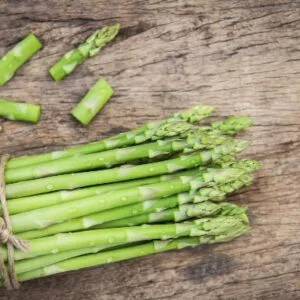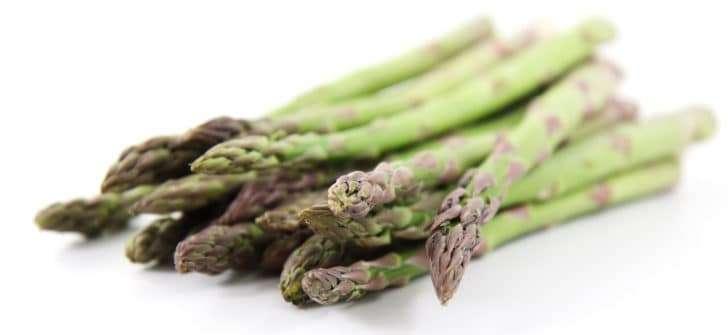Asparagus Seeds (5 seeds)
Original price was: ₹50.0.₹35.0Current price is: ₹35.0.
Asparagus’s newly formed shoots, roots, and underground stems are used to make medicine. The shoots are also used as a food source. Asparagus is used along with lots of fluids as irrigation therapy. Try our Non-GMO Asparagus Seeds. Also, check out our workshops for more details.
PRODUCT DESCRIPTION
Number of seeds in a packet – 5
PLANT DESCRIPTION
- Difficulty Level – easy
- Plant Height – up to 5 feet
- Type – indoor (balcony/ terrace)
- Aroma – smells like sulfurous gases
- Flavor – salty and bitter
- Feed – Vermicompost for nutrients every week, Seaweed once a month for greener leaves, and Epsom salt for better blooming once a month
- Watering – every day (summer)/ alternate days (winter)
- Sunlight – full sunlight
- Germination Time – 3 – 6 weeks
- Suitable Temperature – 60°F – 70°F
- Season – perennial
- Sowing – spring
HOW TO GROW ASPARAGUS FROM SEEDS
- Take a Growbg and fill it with Cocopeat.
- Make (5) ½ inch deep hole and put seeds in each hole.
- Fill the hole with Cocopeat and spray water using a spray gun or spray bottle.
- Water every day during summer and alternate days during winter.
- Seeds will germinate within 3 – 6 weeks.
- Full sunlight is needed.
ALTERNATE METHOD
- Take a Medium Size Pot and add a Potting Mix.
- If planting in the soil add Neem Cake Powder, Vermicompost, and Seaweed.
ALTERNATE NAME
Botanical name: Asparagus officinalis
asparagus seed in hindi: shataavaree beej (शतावरी बीज)
asparagus seed in tamil: asparakas vitai (அஸ்பாரகஸ் விதை)
asparagus seed in telugu: asparagas sid (ఆస్పరాగస్ సీడ్)
asparagus seed in kannada: satavari bija (ಶತಾವರಿ ಬೀಜ)
asparagus seed in marathi: satavari biyane (शतावरी बियाणे)
asparagus seed in malayalam: shathaavari vithu (ശതാവരി വിത്ത്)
Other names: Sparrow grass, garden asparagus..
You must be logged in to post a review.
Q & A
The sustainability of organic herbal seeds is closely linked to several factors, including the cultivation methods, seed production practices, and environmental considerations. Here are some key points to consider regarding the sustainability of organic herbal seeds:
Organic cultivation: Organic farming practices promote sustainability by minimizing the use of synthetic pesticides, herbicides, and fertilizers. Organic herbal seeds are typically grown without the use of genetically modified organisms (GMOs) or synthetic chemicals, which helps preserve soil health and biodiversity.
Seed selection and breeding: Sustainable organic seed production often involves selecting and breeding plant varieties that are well-adapted to local conditions, disease-resistant, and genetically diverse. This process helps maintain the genetic integrity of herbal plants, ensuring their long-term sustainability.
Conservation of genetic diversity: Organic farmers and seed producers often prioritize the conservation of genetic diversity by preserving heirloom and indigenous plant varieties. This helps protect against crop loss due to disease outbreaks or climate change impacts and promotes the resilience of herbal crops.
Seed-saving practices: Saving and sharing seeds from organic herbal plants is an important aspect of sustainability. By preserving and exchanging seeds, farmers can reduce their dependence on external seed sources, maintain plant diversity, and contribute to the overall sustainability of organic farming systems.
Soil health and fertility: Organic farming practices prioritize the improvement and maintenance of soil health and fertility. This involves practices such as composting, crop rotation, cover cropping, and the use of natural fertilizers. Healthy soils support the long-term sustainability of herbal plants and contribute to the overall ecological balance of organic farming systems.
Environmental impact: Organic farming aims to minimize environmental impacts by avoiding the use of synthetic chemicals, reducing soil erosion, conserving water resources, and promoting wildlife habitat. By choosing organic herbal seeds, consumers can support farming practices that have a lower environmental footprint compared to conventional agriculture.
Certification and transparency: Organic herbal seeds that are certified by reputable organic certification bodies provide assurance that the seeds have been produced following strict organic standards. Certification helps maintain transparency and ensures that organic production practices are adhered to, enhancing the sustainability of the seeds.
Overall, the sustainability of organic herbal seeds is closely tied to organic farming practices, conservation efforts, seed-saving traditions, and environmental considerations. By supporting organic agriculture and using organic herbal seeds, individuals can contribute to a more sustainable and environmentally friendly food system.
General Inquiries
There are no inquiries yet.



















Reviews
There are no reviews yet.